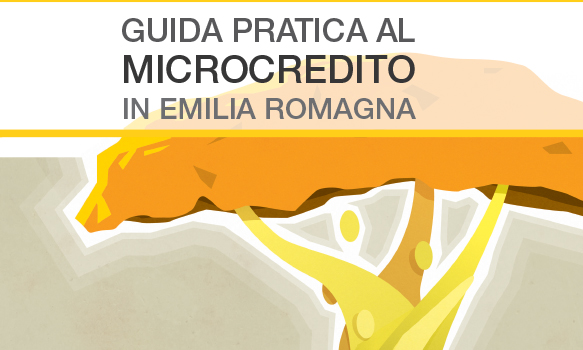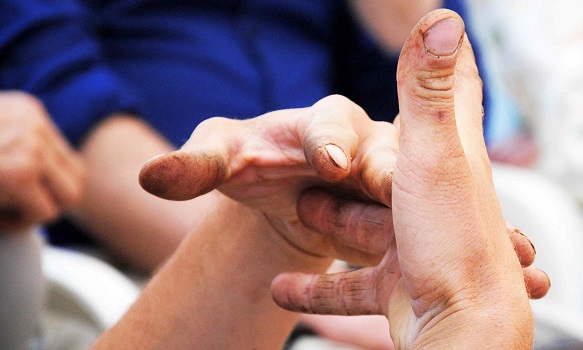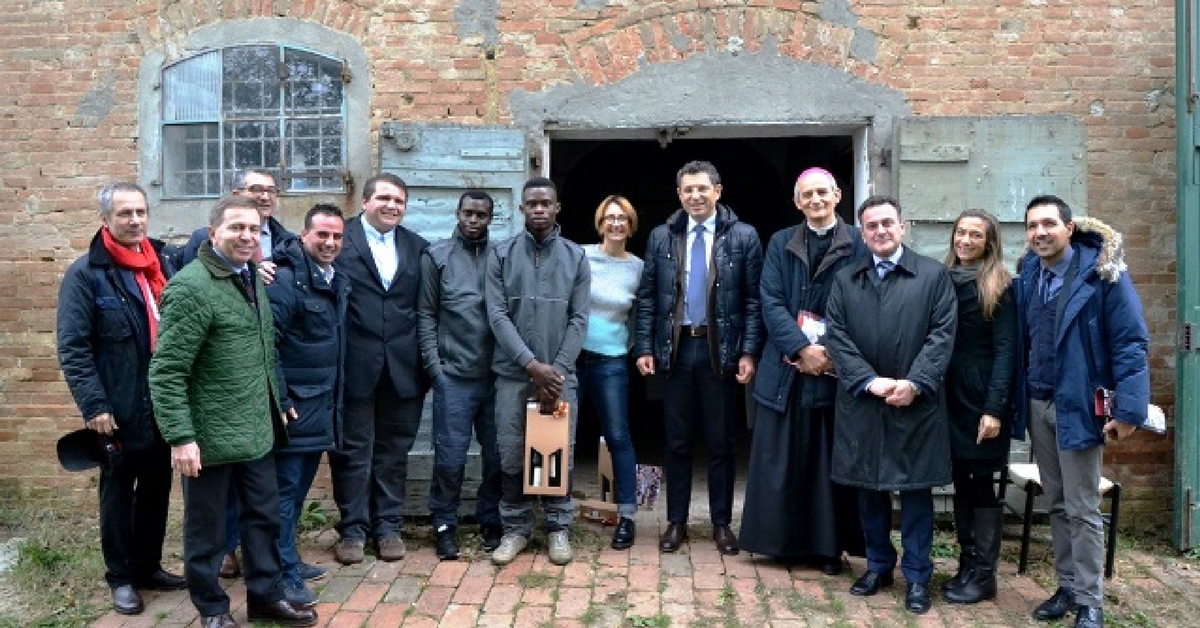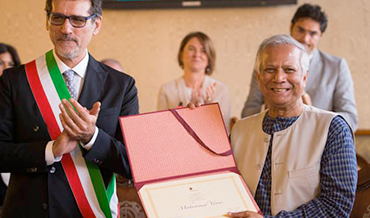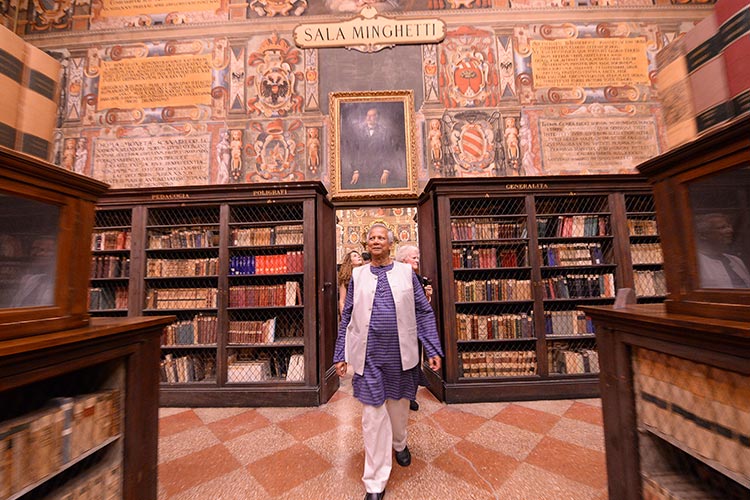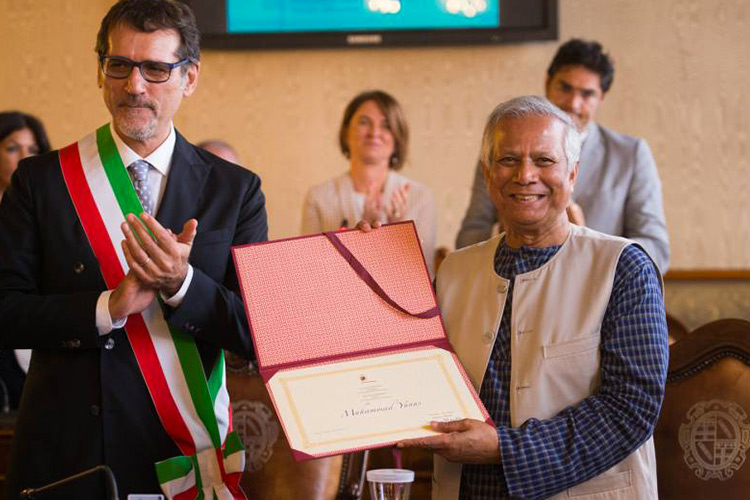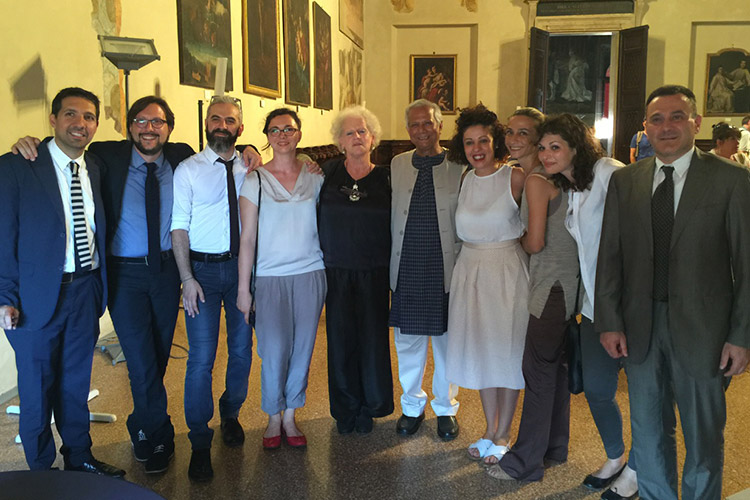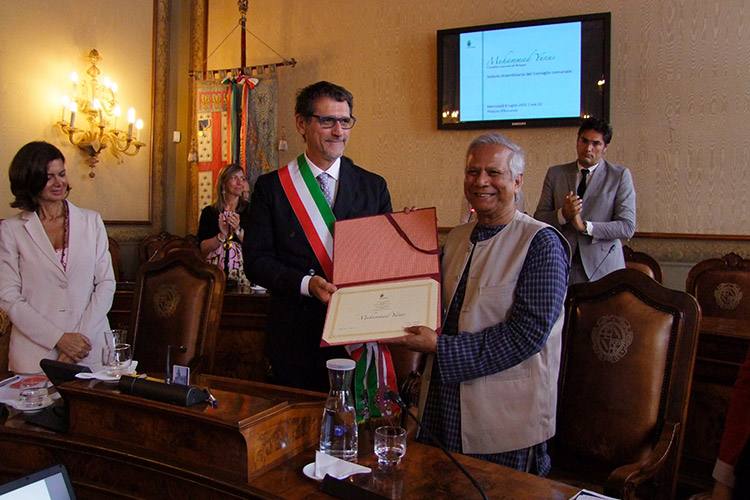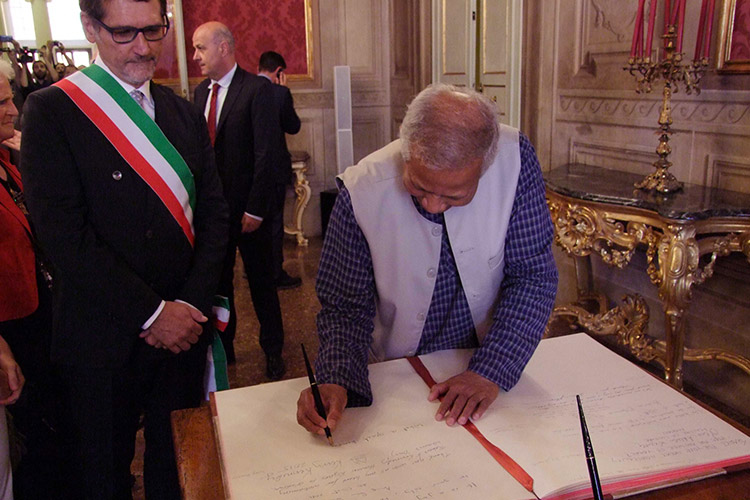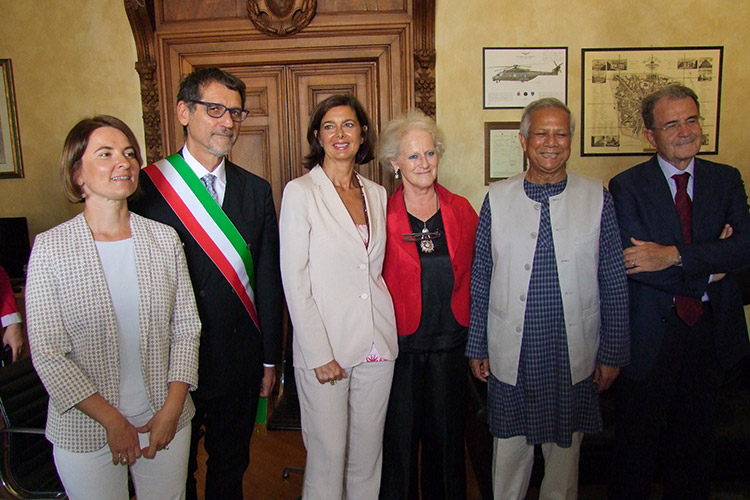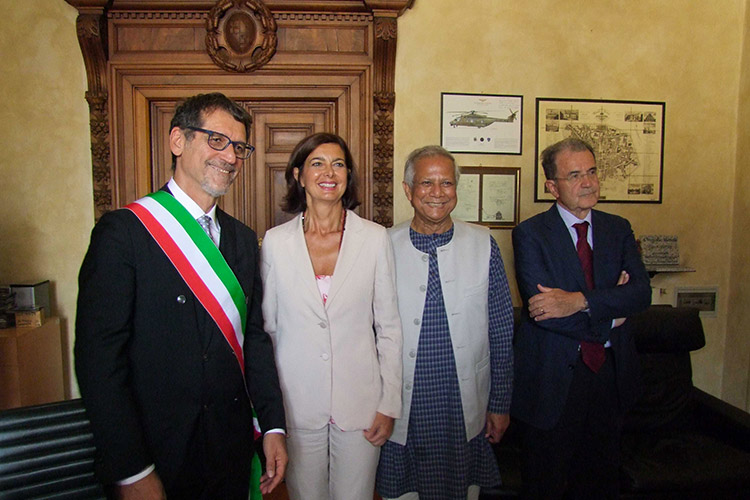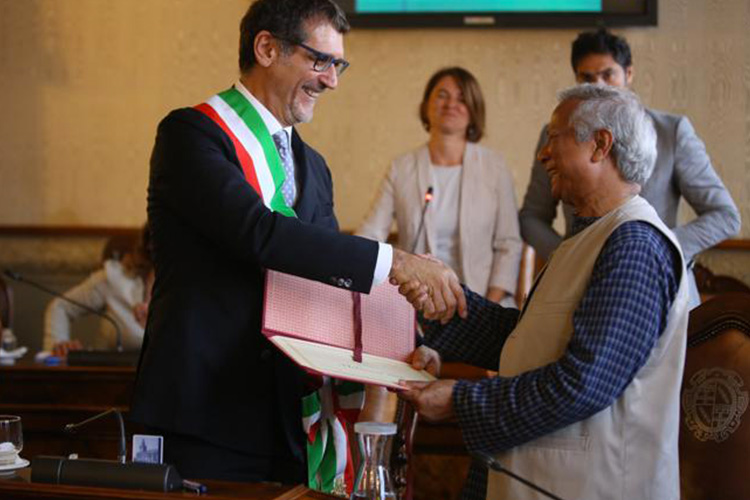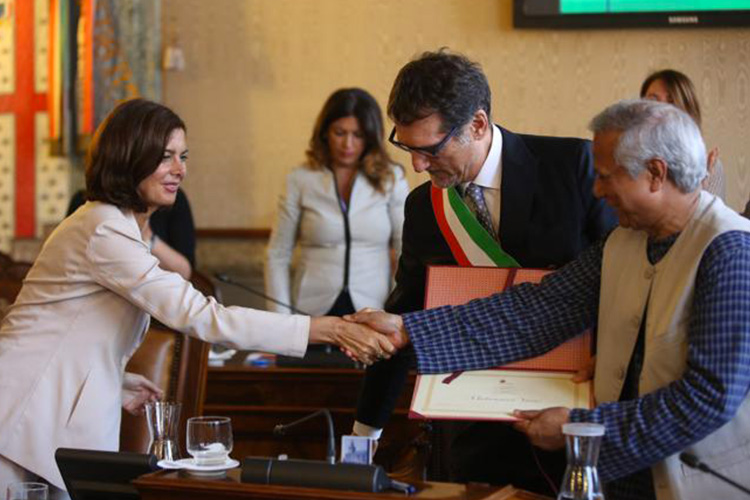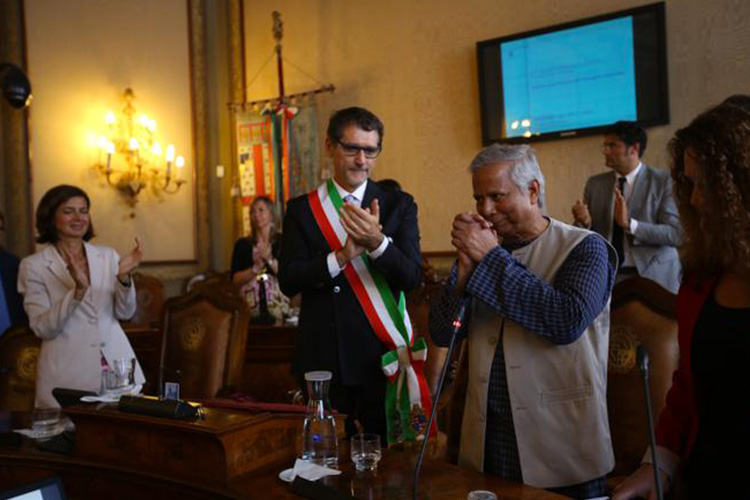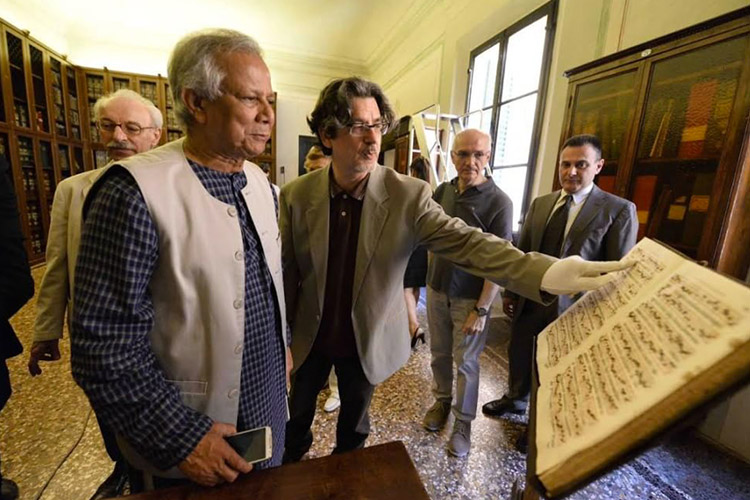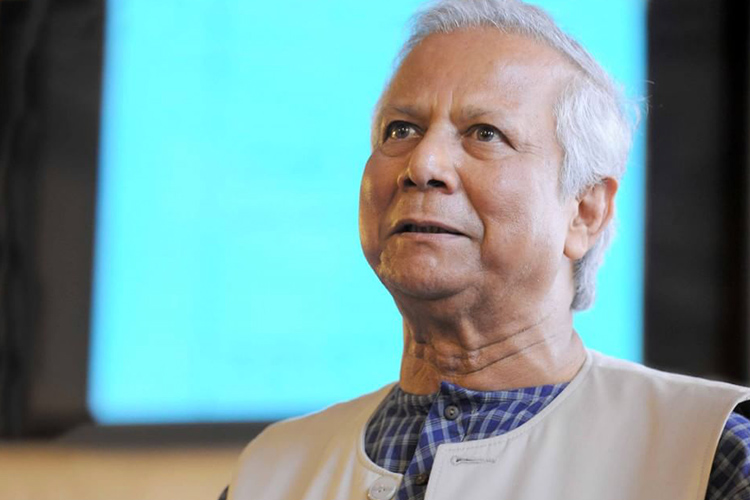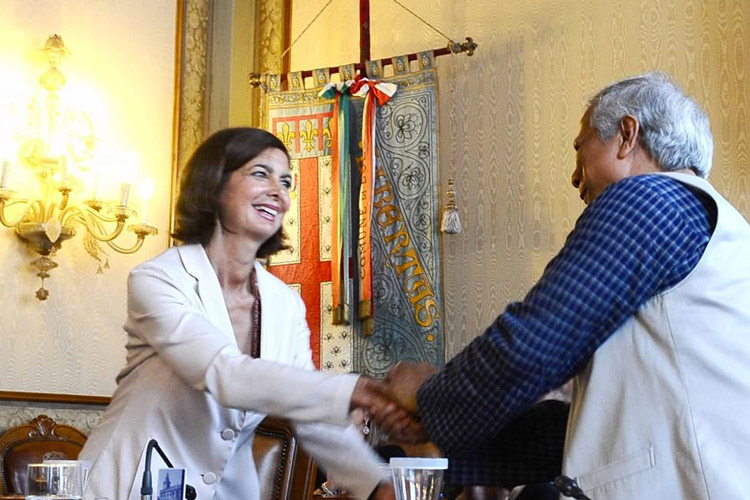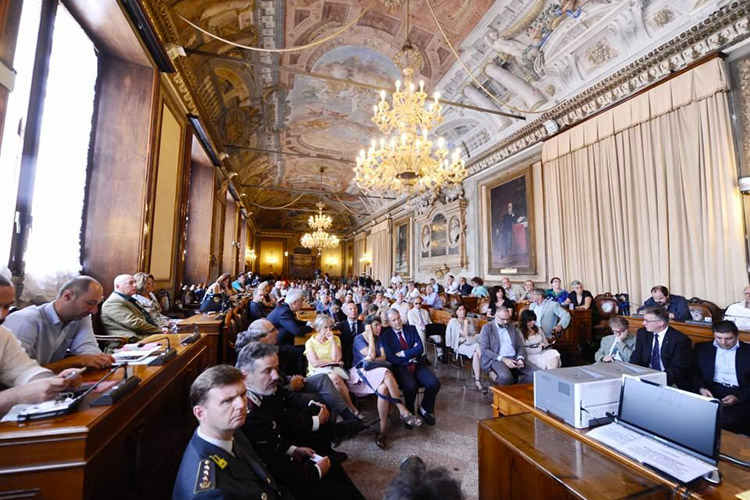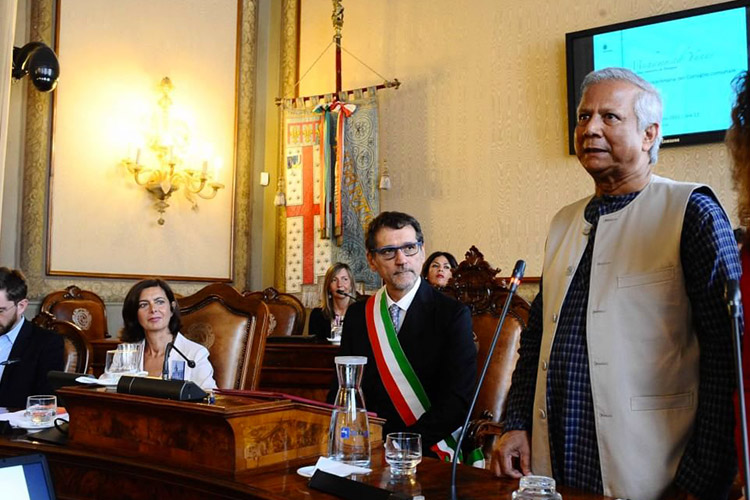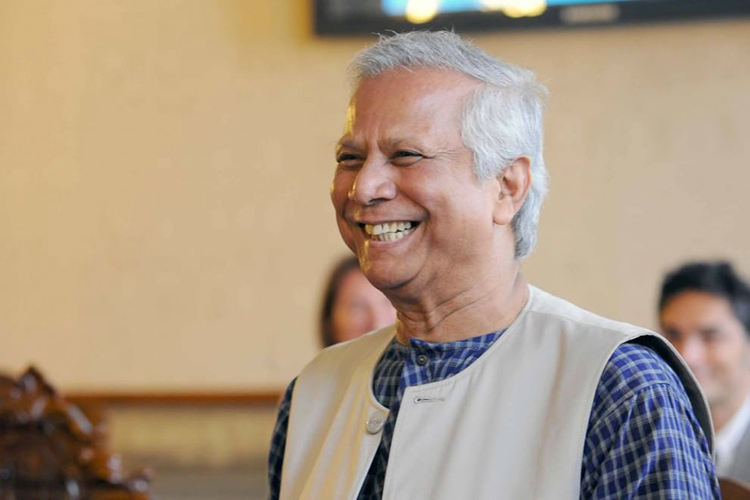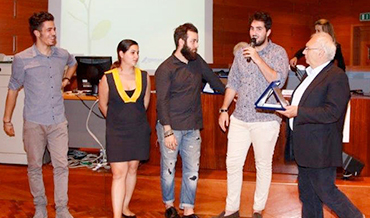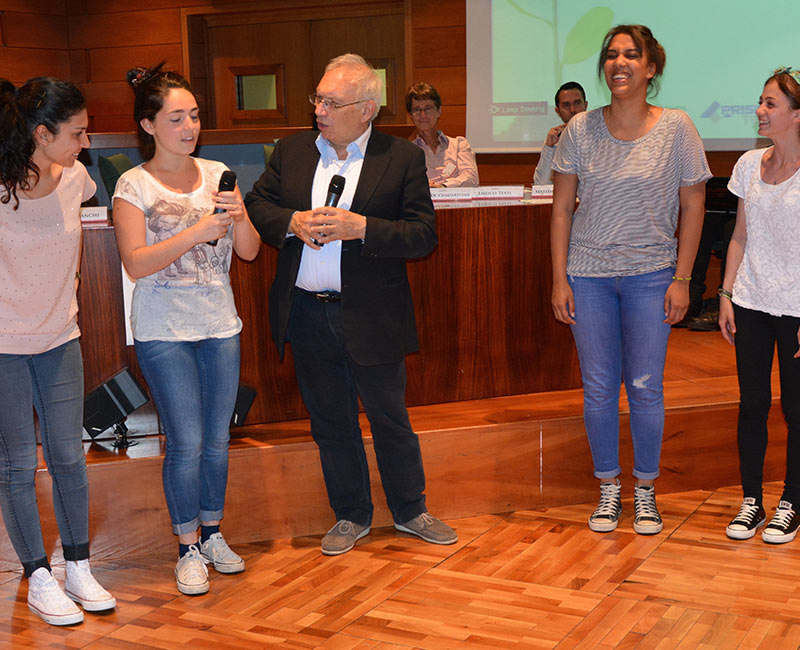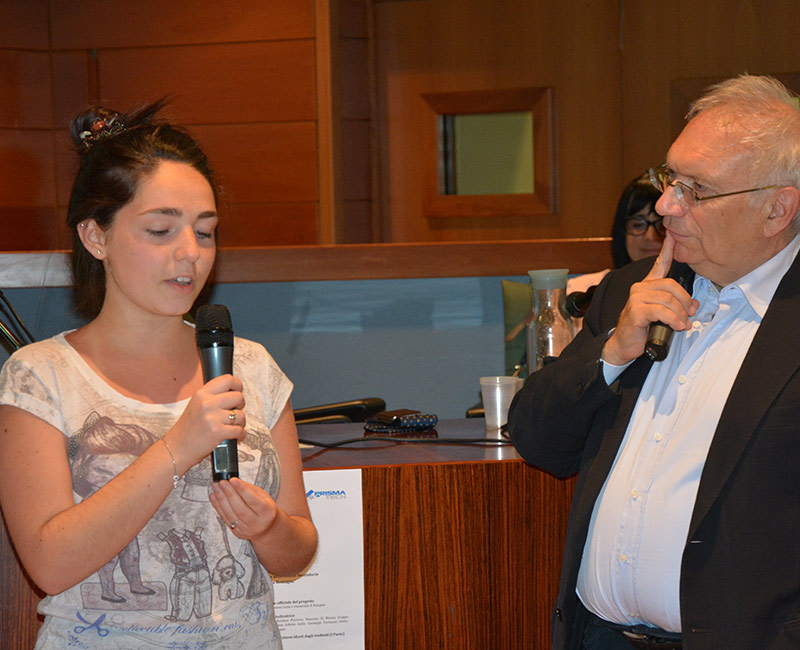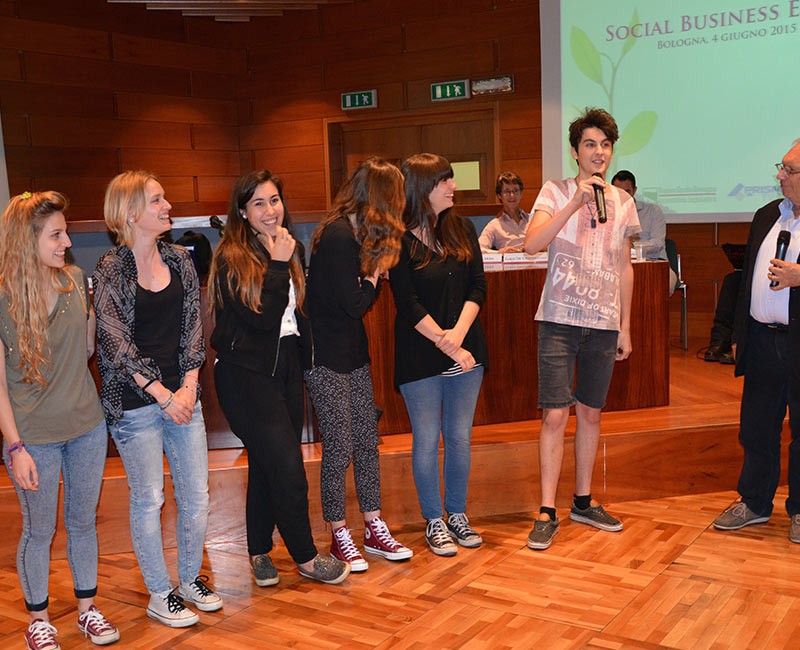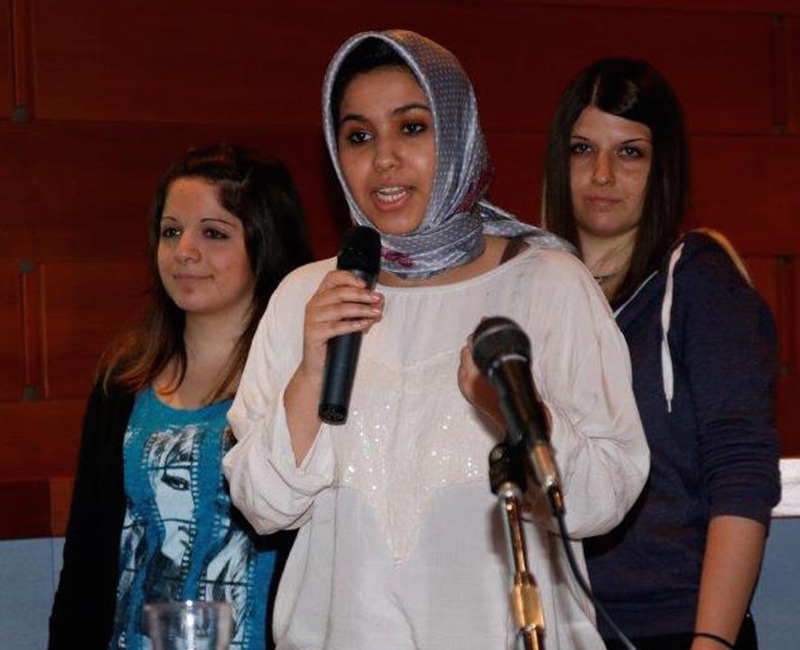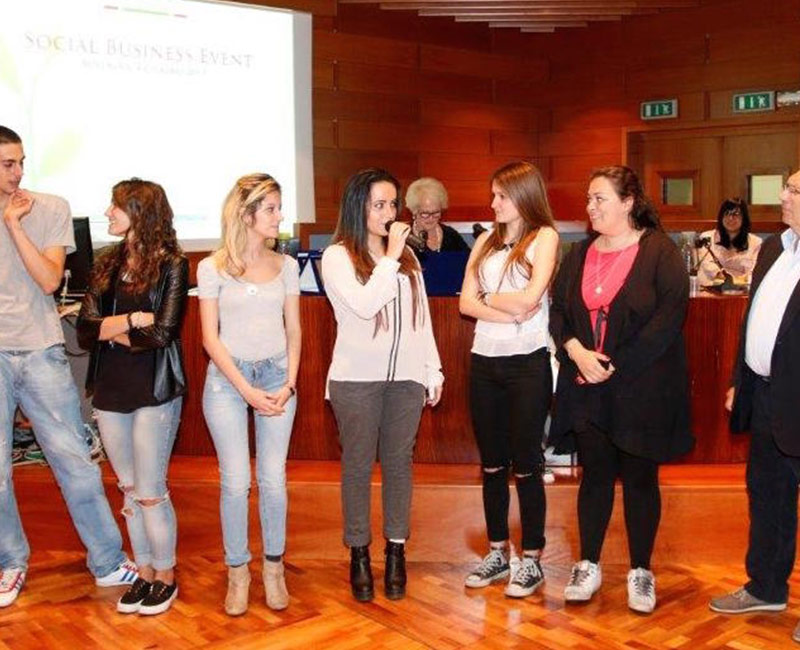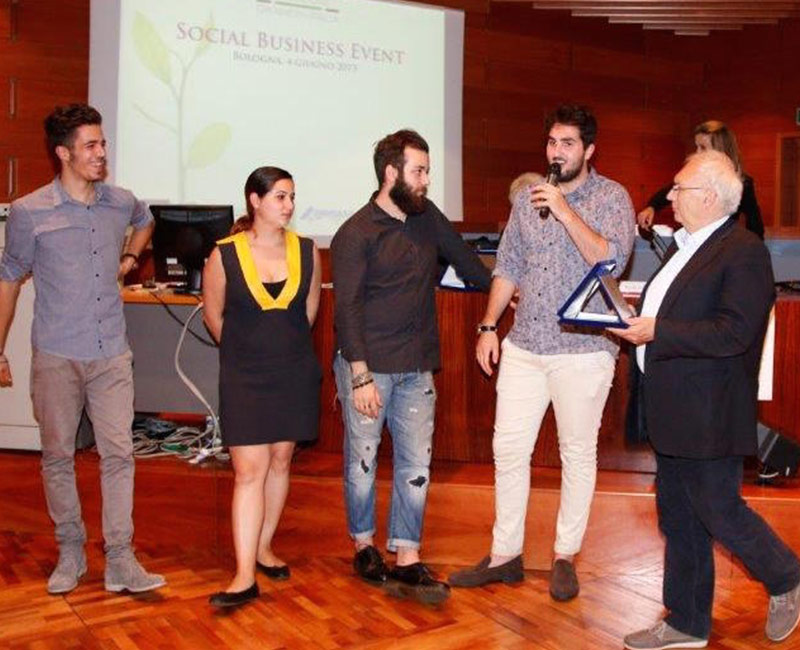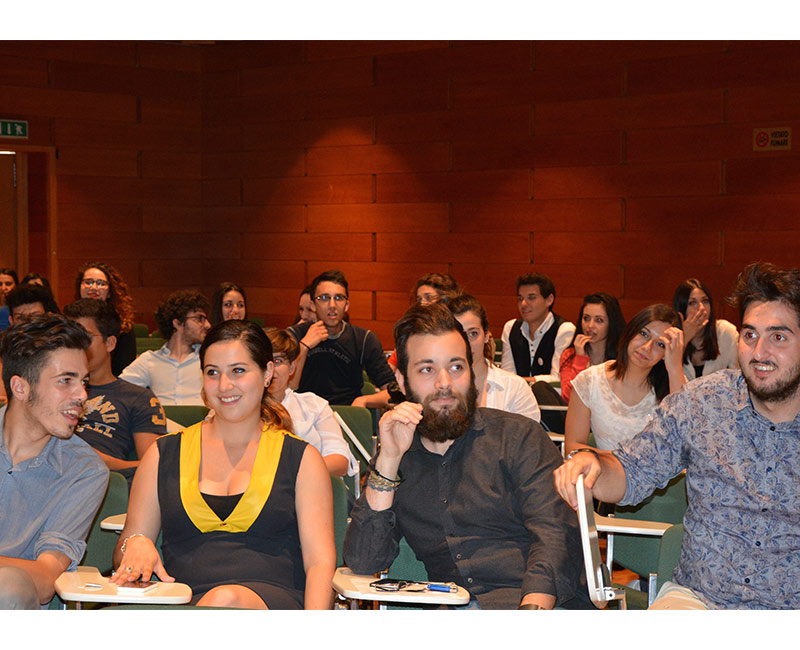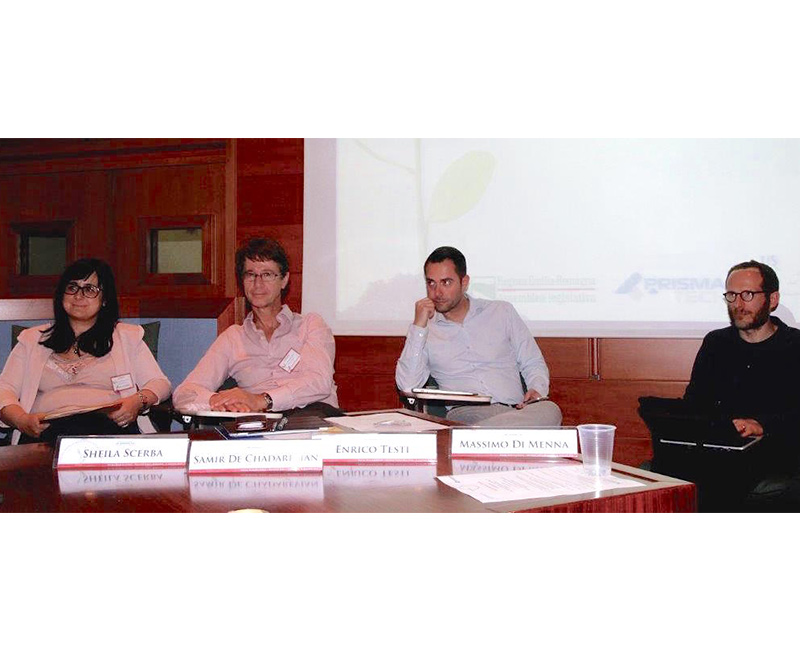Microcredit and Prison
Study for the development of a microcredit program for people who currently are, or have been, inmates at the Bologna prison.
Project completed (2015-2016)
Statistics have shown beyond reasonable doubt that prisoners serving time with an alternative measure have a very low recidivism rate (about 28%), while those serving their sentence in prison return to delinquency with a 68% chance (Leonardi, 2007).
These results are very impressive; however, they may be biased by the fact that it’s detainees with a lower risk of repeating an offense access to prison benefits, and they are selected based on a series of in-depth assessments based on their reliability.
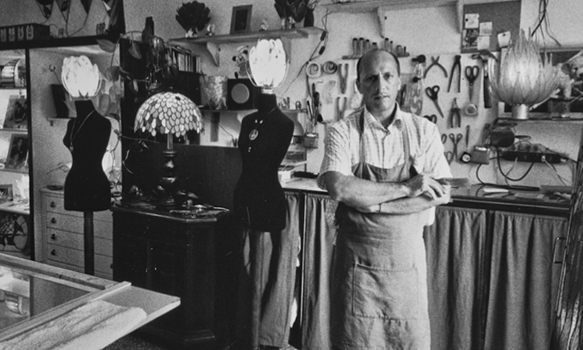
© Gianni Berengo Gardin – Fondazione Forma per la Fotografia
On the other hand, it is more difficult to question data that shows a decrease in the rate of recidivism among detainees who are given the opportunity to work and learn a job during the years of imprisonment. Of these, only 10-12% is a repeat offender. In the experience of some social cooperatives this percentage was even reduced to 1%, where the alternative measure to the prison is accompanied by a reintegration in the workplace.
Data extracted from: “GD Padova” (Democratic Jurists), Report of the guidelines, 11/03/2010.
The implementation of a specific microcredit program for the prison population could be a winning strategy that can provide a concrete contribution to the reintegration of prisoners into the workplace and the interruption of the vicious cycle of recidivism. These programs are intended to directly involve the detainee in his personal reintegration process, starting from the assumption of responsibility and value in self-rebuilding. Support for the planning of training courses (educational and professional) focused on entrepreneurship within the prison would enhance the reformation function of the entire prison system and it would offer ex-convicts the opportunity to benefit from additional services guiding them towards autonomy and reintegration into the social and productive environments. The survey has shed light on the countless training initiatives initiated over the years by the prisons Dozza and IPM in Bologna, underlining how, sometimes, “the types of innovative paths offered in prisons are rather just passing and fragmented experiences” (Benelli 2008). By mapping training courses at Dozza and IPM prisons in Bologna several high-quality projects were highlighted; these offer professional skills that can be applied in the external work environment, also through the development of small business activities. Good practices include the RAEE project started in 2009, FID activated in 2012, the “Elbow to Elbow” tailor’s workshop started in 2010, Cultivating Citizenship launched in April 2014, Intra-Logos born in 2014. The project aims at the construction of a production chain that connects the prisoner to social and work environments, thus overcoming the limits and the criticalities that characterize the delicate step of being released from prison.
Multiple interviews were carried out during the research:
Valerio Monteventi, Doing business in Dozza (FID); Martino Colombo, Elbow to Elbow; Valerio Guizzardi, Papillon Rebibbia Association and Social Cooperative Croce Servizi; Dario Audiello, Center for Employment of the Province of Bologna; Gaetano Vuozzo, Prison help desk, Province of Bologna; Stefano Cuppini, Social Cooperative Cefal; Paola Piazzi, Poggeschi Center for Prisons; Armando Reho, Convicts office and PRAP Treatment Emilia Romagna.
Supervisor: Prof. Luisa Brunori
Researchers:
- Alice Bano
- Giorgia Bonaga
- Daniela Tuccio
The research “Faremicrocredito.it”
PLANNING OF MICROCREDIT PROGRAMS FOR SPECIAL POPULATIONS
Project completed (2013-2014)
With the aim of understanding the potential of microcredit in Italy, the Grameen Italia Foundation has promoted an interdisciplinary research work. It has been conducted starting from a systematic collection of data that led to the identification of the state-of-the-art on microcredit and the particularities that the phenomenon has taken in the Emilia-Romagna Region. Through the research, four excluded populations and/or at risk of social and financial exclusion have been identified, for which the application of microcredit could imply a substantial advantage. These are prisoners and former prisoners, young people (the so-called N.E.E.T.), foreign citizens and people with mental illness. Through a simulation, we tried to understand how and with which benefits – economic and not only – we can design new opportunities for individuals and communities, to be also applied in the field of public policies.

© Gianni Berengo Gardin – Fondazione Forma per la Fotografia
Stages of research
They are:
The results of the research can be found in the text:
Brunori, L., Giovannetti, E., & Guerzoni, G. (Eds.). (2014). Faremicrocredito. it. Lo sviluppo del potenziale del microcredito attraverso il social business in Italia: Lo sviluppo del potenziale del microcredito attraverso il social business in Italia. FrancoAngeli, Milano.
The research group
Supervisor: Prof. Luisa Brunori
Senior Researchers:
- Prof. Luisa Brunori (Psychology Field)
- Prof. Enrico Giovannetti (Economy Field)
- Prof. Giovanna Guerzoni (Antropology Field)
- Prof. Marco Lamandini (Law Field)
Junior Researchers:
- Dr. Chiara Bleve
- Dr. Giorgia Bonaga
- Dr. Daniele Ferraguti
- Dr. Katherine Hunt
- Dr. Francesca Pellegrini
- Dr. Shamimur Rahman
- Dott. Roberto Guzzo
Practical guide to microcredit in Emilia-Romagna 2013
Project completed (2013)
The Practical Guide to Microcredit in Emilia Romagna was created on behalf of the Grameen Italia Foundation in collaboration with Terre d’Argine Union and the patronage of the Legislative Assembly of the Emilia-Romagna Region.
The guide is intended for both potential borrowers of microcredit initiatives and operators in social, health, education and information services in the area. Easy to refer to, the guide aims at providing social workers with a useful tool for identifying and directing users towards innovative channels of financial and social inclusion; in addition, it helps users by directing them in the choice of the more fitting microcredit alternatives for their specific needs.
The practical guide to microcredit includes the description of twenty-five microcredit programs on regional territory and censused in 2013 through the questionnaire-interviews handed directly to promoting entities. All programs presented are intended to promote the financial and social inclusion of non-bankable individuals and families in economic difficulty.
We wish to see a dissemination among all those who consider the practice of Microcredit as a mean of supporting the person; we believe that, for it to be an effective opportunity, it must be brought to the attention of the largest number of potential borrowers and operators of public and private services.
The Social Farm Model: microcredit and agriculture
The Social Farm Model aims at starting and developing small agricultural businesses based on the Grameen method to meet the economic, environmental and social needs of the territory and counteract the problem of depopulation of rural areas.
How? Through:
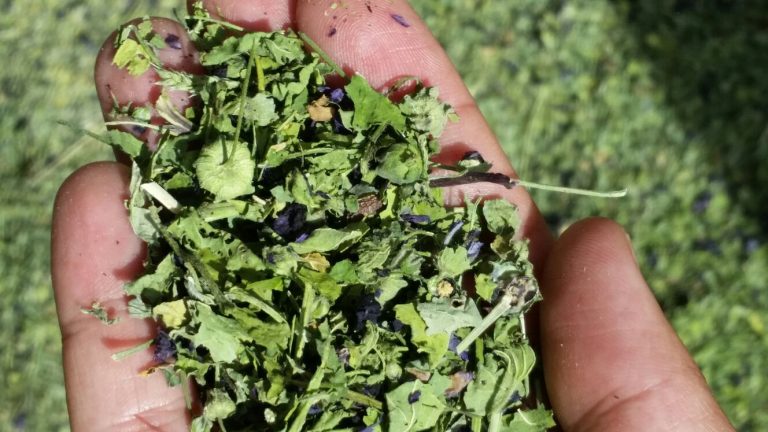
As we know, the phenomenon of depopulation causes the weakening of economic activities – such as agriculture, farming and tourism – which in rural contexts find their most natural vocation. It also exposes the area to environmental hazards (fires, hydrogeological instability, landscape negligence) affecting the entire community. Lastly, from a social point of view, depopulation makes certain essential services, such as transport, communications, and health, more expensive for citizens.
To tackle the problem, the Common Agricultural Policy (CAP) has identified several cycles of specific measures by setting up funds that can contribute to the sustainability of the Social Farm project.
Grameen Italia has decided to experiment with the Social Farm Model in the province of Bologna.
Goals:
The distinctive and definitive elements of the Social Farm Model are:
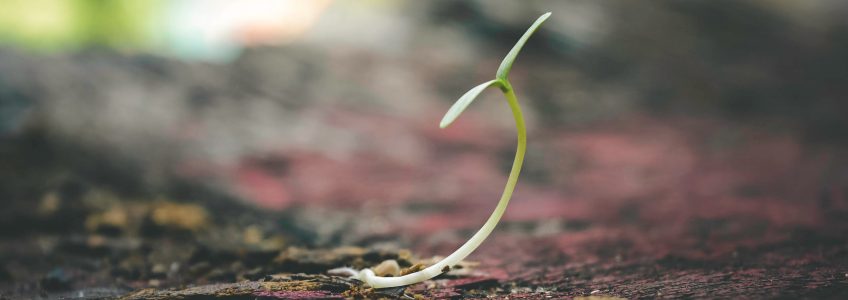
Method and brand
The Social Farm Model initially provides the inclusion of potential borrowers of the microcredit program on a technical training course (extracurricular training or internship) designed to acquire specific skills for management of agricultural or zootechnical enterprises.
Technical training is provided by the many partners distributed in the region (farms, cooperatives, University of Bologna) and it allows borrowers to specialize in the management of innovative agricultural activities (horticulture, beekeeping, hemp cultivation, etc.).
At the end of this phase, borrowers are involved with Grameen Italia in an entrepreneurial training course (“Group Training”) in order to develop the business idea and develop its business plan.
The documentation produced during the training is analysed by a micro-credit institution which assesses the eligibility of the application during the pre-examination phase. Once the application is approved, Grameen Italia accompanies the new entrepreneurs throughout the company’s development process and credit repayment.
The Social Farm can be started by using the goods and/or the land made available by the partners (for example, loan for use). Alternatively, the neo-entrepreneur’s production activities can integrate into existing farms which need to improve production capacity.
The quality of goods and food produced by micro-enterprises started thanks to microcredit programs will be guaranteed by the brand “Grameen Social Farm”. The researchers at the University of Bologna will verify and certify the quality standards and characteristics of the brand’s worthy products.
That’s not all: “Grameen Social Farm” will be synonymous with innovative production processes, high social technology and quality production lines. It will provide local consumers with healthy and nutritious foods, cultivated in the respect of workers, the environment and the local tradition.
Finally, the companies and the project partners will be invited to participate in the construction of a real “Social Farm Community”: a network of organizations interested in extending the initiative to other territories and enhancing the social inclusion capacity of the Social Farm Model.
The first Social Farm
A first application of the Social Farm Model was born thanks to the collaboration between the Grameen Italia Foundation, the Department of Veterinary Sciences and Agrarian Sciences of the University of Bologna, the provincial Acli, the Association Vet for Africa and the Municipality of Ozzano dell’Emilia.
In May 2016 the Department of Veterinary Sciences started an extracurricular traineeship course for two refugee students. The year-long internship, funded by the Association Vet for Africa, has been activated with the aim of transmitting to the two students basic techniques for the start-up and management of zootechnical activities: a farm of small ruminants for producing milk.
In addition to technical training, borrowers also benefit from entrepreneurial training that supports them in developing a sustainable and successful business plan. At the end of the training course, the two beneficiaries were included in the microcredit program specifically designed to start an independent business venture.
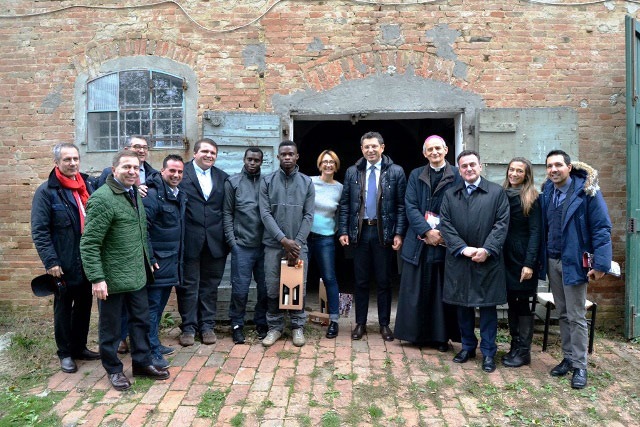
The inauguration of the “Solidale” (i.e. fair trade) farm project, Ozzano dell’Emilia, was honoured with the presence of St. Ecclesiastical Archbishop of Bologna Matteo Maria Zuppi and of the Magnificent Dean of the University of Bologna, Francesco Ubertini (11/11/2016).
Grameen Italia issues the challenge – Social Farming in the Apennines
Our challenge
Grameen Italia issues the challenge Social Farming in the Apennines: a call addressed to start-ups, businesses and non-profit organizations willing to start or to develop small agricultural or extra-agricultural activities with social aims in the Bolognese Apennines.
A 30,000-euro grant will be given to the proposers of the best solution to the challenge, up to a maximum of three eligible solutions (without splitting the grant).
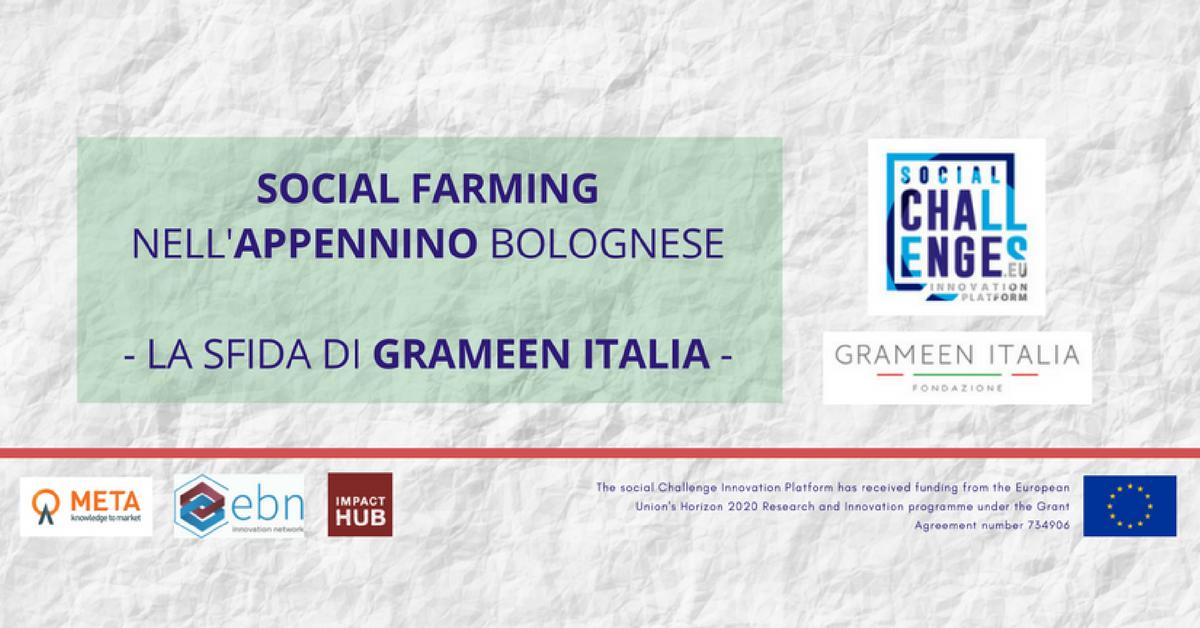
The loan will be disbursed in two separate tranches: 80% will be awarded in advance and the remaining 20% at the end of a six-month period. Furthermore, a supporting program will be implemented by Grameen Italia to help the winners in the implementation of the solution.
The goal of the challenge is to promote the repopulation of the mountain areas, which are being abandoned, through agricultural business projects designed to integrate disadvantaged people into society and labor market.
Social Farming in the Apennines refers to the Social Farm Model created by Grameen Italia: a highly inclusive business model that generates economic, environmental and social value for all the subjects involved and for the community hosting the Social Farms. The Model promotes the synergy between private profit and non-profit sectors to support the high-quality production chains respecting the territorial tradition and the environment.
The context
Our challenge is one of 30 already online on the Social Challenges Innovation Platform, an expression of the European Horizon 2020 project coordinated by META with the support of the partners European BIC Network (EBN) and Impact Hub, promoted by Aster in Italy.
The platform aims to build a digital ecosystem of social projects and solutions in order to encourage interaction between the public and private sectors and to co-develop innovative projects suitable for the market with clear social goals.
How to partecipate?
The text of the regulation is online.
Start-ups, companies and third sector organizations can apply with a project written in English. Group projects can also be presented, in a number not exceeding 3 participants. The steps to participate are:
- Create an account on the Socialchallenges.eu platform.
- Upload your proposal (written in the points required by the regulation on page 7)
- Wait for the proposal’s eligibility assessment (criteria on page 8 of the regulation)
- Once the proposal is accepted, wait for the winners to be elected (criteria and score on page 9 of the regulation)
An Italian guide is also available explaining how to load the project on the Social Challenges platform.
We hope to receive various proposals and we remain available for clarification at the email address info@grameenitalia.it.
Inauguration of an educational and fair-trade farm for asylum-seekers
Ozzano dell’Emilia,
November 11, 2016.
The idea was to lay the foundations for a self-determined entrepreneurship in agricultural and zootechnical fields for some young asylum seekers who have been training for six months at the Department of Veterinary Medical Sciences of Alma Mater.
The inauguration of the Social Farm in Ozzano dell’Emilia was honoured by the presence of St. Ecclesiastical Archbishop of Bologna Matteo Maria Zuppi and the Magnificent Dean of the University of Bologna, Francesco Ubertini.
The educational and fair-trade farm project is based on a close collaboration between Vet for Africa, the Acli of Bologna, the Asp City of Bologna, the Bologna University with its Department of Veterinary Medical Sciences, Oficina IS, the Grameen Italia Foundation, PerMicro, the Municipalities of Bologna (with the Institution for Social Inclusion “Don Paolo Serra Zanetti”) and of Ozzano dell’Emilia.
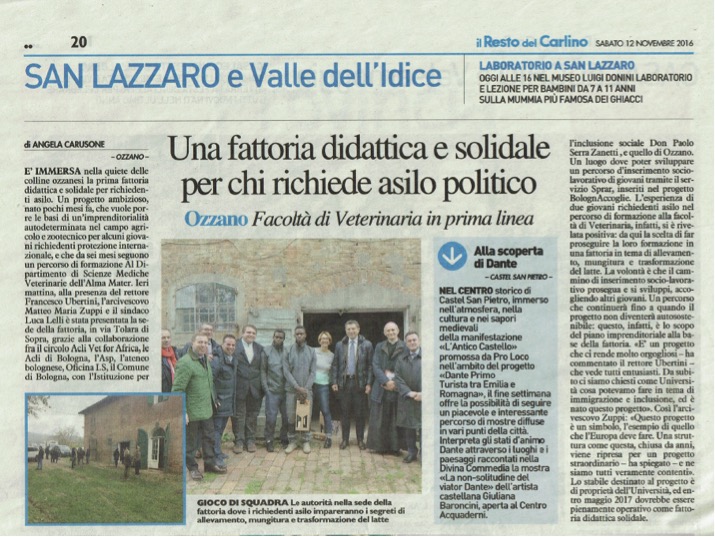
In particular, the idea of starting a didactic and fair-trade farm was born from the aim of laying the foundations for self-determined agricultural and zootechnical entrepreneurship for certain young international protection applicants who have been trained for six months at the Department of Veterinary Medical Sciences of Alma Mater. This wouldn’t have been possible without the exceptional personal and professional commitment of Professor Arcangelo Gentile, of the International Relations Officer, Alessandra Scagliarini, and of the Delegate to disability Professor Rabih Chattat.
The experience of young Africans has turned out to be very positive: hence, the will to continue their training in the farm, in breeding, milking and processing milk. The intention is to not let this positive socio-occupational integration path be limited to what has been done so far, but make it continue and develop with a relay mechanism, welcoming other young asylum seekers who, in turn, can be assisted by more experienced colleagues. Thanks to the commitment, on a different scale, of the partners, the training course will continue until the project becomes self-sustainable: this is the purpose of the business plan underlying the Farm.
The project’s strength is in the partnership network: everyone has believed and invested in a different way in the idea. The hope is to “export” it to other realities, offering it as a virtuous model of integration which also creates jobs and satellite activities for all the region.
Social Business Event 2nd Edition
Final conference of the project:
“Promoting Social Business in the
Secondary School of the Emilia Romagna Region”
Salone Bolognini, c/o il Convento San Domenico,
Piazza San Domenico, 13 Bologna
On May 30, 2016, at the Salone Bolognini, a splendid setting for the initiative, over three hundred students and professors from the Secondary Schools of the Emilia Romagna Region took part in the Social Business Event’s 2nd Edition.
The competition between the social business ideas represented the final phase of the training project that the Grameen Italia Foundation realized during the school year 2015/2016.
During this day, Patrizio Bianchi (Emilia Romagna Region), Matteo Lepore (Municipality of Bologna) and Giovanni Desco (Regional School Office) intervened, stressing the importance of supporting educational interventions capable of developing entrepreneurial attitudes among young students and promoting an active citizenship.
Eros Drusiani, the event’s main lecturer, lead with a spark of irony the presentation of the fifteen groups admitted to the final competition. The audience witnessed original and captivating explanation of business ideas: alternating short films and interviews, animated presentations, stories inspired by the business idea, and even tastings of the products offered.
Each group had five minutes for the elevator pitch and five minutes to answer the questions of the judges. The performances were evaluated by a Committee composed of representatives of the worlds of profit, non-profit and local institutions (Legacoop Bologna, Ashoka Italy, Incredibol-Municipality of Bologna, La Petroniana s.r.l., Maccaferri Group, Young Entrepreneurs Unindustria).
The day ended with the proclamation of the three winning groups.
1st place was awarded to the group “S.L.E.F.F.” from high school Alessandro Tassoni of Modena with a homonymous project. The idea proposed was to create an online portal to encourage the free exchange of unused items among private individuals, and the purchase and sale of unsold goods between companies and individuals.
The group “I do not know, you tell me” from high school Laura Bassi made the 2nd place with “The flavours of the wind”. This is the name of a company which intends to create a multi-ethnic catering service, employing migrant women, enhancing their skills and supporting cultural exchange with the Italian context.
In 3rd place, finally, we find the “Brainsavers” group from I.T.C.S. Salvemini with the social business “Cleaning from the world”. The project involves the creation of a facility management company that offers job opportunities for political refugees.
The Foundation thanks all the participants who have contributed to making the day rich and passionate.
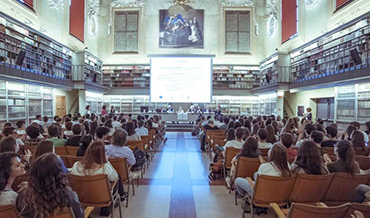
Ceremony for awarding Honorary citizenship to M. Yunus
Palazzo D’Accursio, Municipality of Bologna,
8 July, 2015.
On July 8, 2015 Muhammad Yunus, inventor of microcredit and founder of Grameen Bank, received honorary citizenship of the City of Bologna.
Muhammad Yunus, 2006 Nobel Peace Prize winner, strengthens his connection to the Emilia Romagna capital. In fact, in 2004, two years before receiving the Nobel Prize, she was awarded the Honoris Causa Degree in Education Sciences at Alma Mater Studiorum, as suggested by Professor Luisa Brunori. The title was awarded by the Magnificent Dean Pier Ugo Calzolari. Eleven years after, during which Prof. Brunori’s workgroup continued to invest in the promotion and design of Microcredit and Social Business, Prof. Yunus returned to visit Bologna. Upon a proposal by the Mayor of Bologna, Virginio Merola, and the President of the City Council Simona Lembi, the City Council met in an extraordinary session to grant honorary citizenship to Muhammad Yunus in the presence of the third office of the State, the President of the Chamber of Deputies Laura Boldrini.
The day ended in the Farnese Chapel at Palazzo D’Accursio in Piazza Maggiore, where Professor Yunus held a speech addressed to citizens. During the meeting Professor Luisa Brunori and Prof. Romano Prodi took the stand.
By clicking on the items in the list below, you can read the speakers’ interventions. Below you can view photos of the event.
Press review - Newspapers
Ansa.it
Yunus cittadino onorario di Bologna. Il premio Nobel ringrazia: ‘avete perfino adeguato il clima…’
Il Resto del Carlino
“Che gioia essere bolognese”
Il Corriere Bologna
“Cittadinanza Onoraria Yunus”
Bologna2000.com
Muhammad Yunus cittadino onorario di Bologna
Bolognatoday.it
Cittadinanza onoraria all’economista Muhammad Yunus, presente anche la Boldrini.
Iperbole, comune.bologna.it
Cittadinanza onoraria a Muhammad Yunus
Consiglio Comunale di Bologna
Delibera di Consiglio per la cittadinanza onoraria a Yunus del 3/11/2014
Il Sole 24 ore
Prodi: Yunus un innovatore che ha contribuito a lotta alla povertà
Non profit e imprese, per il Nobel Yunus, «la contaminazione porta innovazione» –
La Repubblica
http://bologna.repubblica.it/cronaca/2015/07/08/foto/yunus-118631338/1/#1
http://bologna.repubblica.it/cronaca/2015/07/08/news/il_j_accuse_del_nobel_per_la_pace_banche_colpevoli_della_poverta_-118641588/
Press review - Web
Siti web
http://muhammadyunus.org/index.php/91-news/1447-honorary-citizenship-for-yunus-from-city-of-bologna
http://www.lauraboldrini.it/gallery-2/conferimento-cittadinanza-al-premio-nobel-muhammad-yunus-bologna-8-luglio-2015/
http://www.daily-sun.com/post/57802/Dr-Yunus-conferred-honorary-citizenship-of-Bologna
http://www.comune.bologna.it/news/cittadinanza-onoraria-muhammad-yunus
http://www.epa.eu/human-interest-photos/people-photos/muhammad-yunus-recieve-the-honorary-citizen-tittle-in-bologna-photos-52044536
Video
http://www.e-tv.it/video/23218/cittadinanza-onoraria-per-muhammad-yunus-inventore-del-microcredito
http://video.ilsole24ore.com/TMNews/2015/20150708_video_17083957/00033424-prodi-yunus-un-innovatore-che-ha-contribuito-a-lotta-alla-povet.php
http://www.rainews.it/dl/rainews/TGR/basic/PublishingBlock-7fe62863-62cd-4276-9560-cfd75abeea68-archivio.html#
Social Business Event 1st Edition
Final conference of the project:
“Promoting Social Business
in Secondary Schools of the Emilia Romagna Region”
Emilia Romagna Region,
Polyvalent Hall Guido Fanti- Viale Aldo Moro, 50,
4 giugno 2015
The first edition of the Social Business Event Bologna was held on Thursday, June 4, 2015 at the Guido Fanti Polyfunctional Hall of the Emilia Romagna Region and sponsored by the Emilia Romagna Region and the Regional School Office. On this occasion, the students who participated in the “Promoting Social Business” training course were challenged to strike ideas to solve one of the social problems identified in their community of reference and then publicly presented the social business projects they developed.
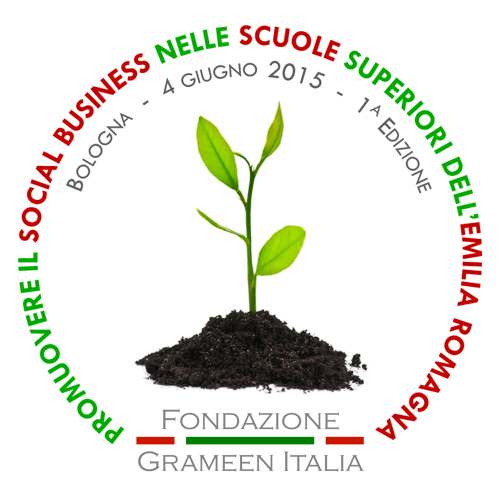
The best ideas were selected and awarded by a jury of experts based on criteria of creativity, originality, sustainability and impact potential on the social problems identified. The event was supported by local authorities whose representatives actively participated in the works. Deputy Mayor Silvia Giannini chaired the work, while Counsellor Patrizio Bianchi (Counsellor for Coordination of European Development Policies, School, Vocational Training, University, Research), after sharing some thoughts on the regional development lines of Social Business, awarded the most deserving projects, described below.
The first-place group, L-Mast, designed “Homelette”: a “poor cuisine” restaurant that employs homeless people to provide its services and to manage its activity. It is a business that fulfils two social functions: on one hand, it gives the homeless an opportunity to challenge themselves in a work environment, while on the other it provides them with an accommodation.
The idea of the second-place group, La Rosa dei Venti, was to create a structure, the Amarcord Center, where autonomous elderly people can provide courses to pass on to younger people ancient community know-how and produce traditional food products.
Brain, the third-place group built an enterprise that deals with the reintegration of prisoners into social and work environments through training in prison. These training courses are designed to develop the technical skills necessary for the production and sale of “Biscotti Galeotti” (literally “Convict Cookies”), bakery and pastry products.
“Grameen Italia for Refugees” project
The University of Bologna recently launched the “UNIBO for Refugees” initiative to promote the integration of young refugees into the university world. The University of Bologna offers scholarships and concessions to asylum seeker/refugee students who intend to enroll in university courses. However, due to the waiting times between enrollment in the courses and the provision of benefits, refugee students have to advance the registration fees. Often this step is a serious problem for students who do not have any type of income and represents one of the main obstacles to inclusion in the university community.
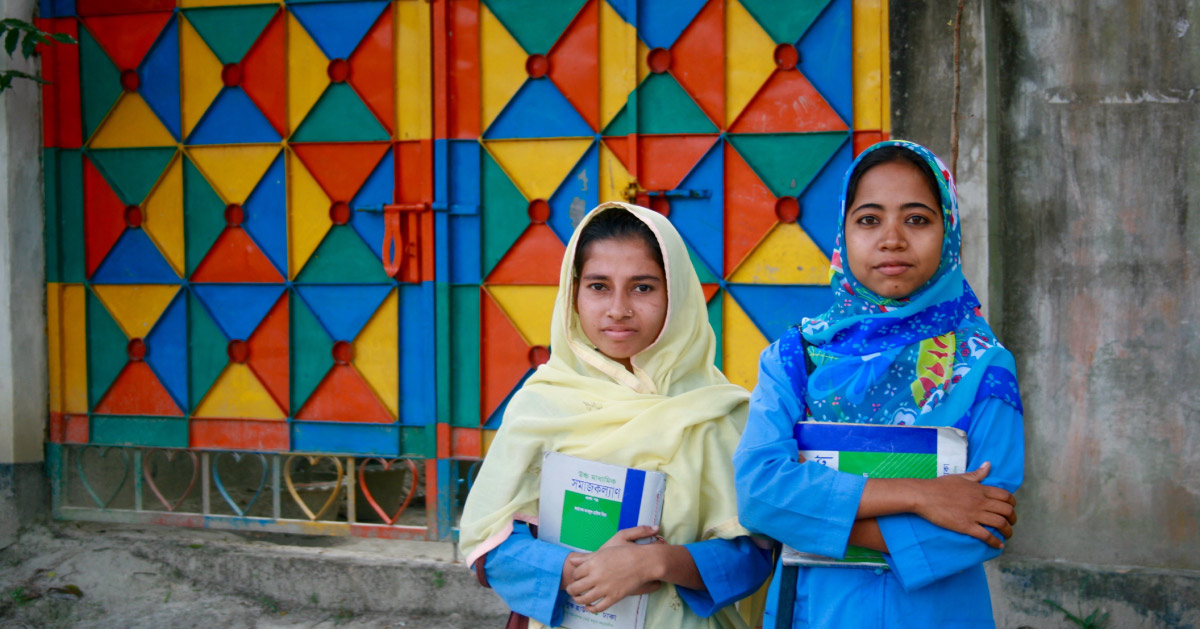
Goals:
- Offer refugee students the opportunity to access university courses and benefits dedicated to them;
- Offer students the opportunity to continue their studies and rebuild a future;
- Overcome the problem associated with paying tuition fees for university courses.
Thanks to the agreement between the University of Bologna and Fondazione Grameen Italia, students with international protection will be able to obtain a small subsidized loan to enroll in the degree or master’s degree courses of the University of Bologna.
Grameen Italia will anticipate the first installment of university fees for students with international protection who have applied for Er.Go. As envisaged in the Grameen methodology, the beneficiaries of the loan will be involved in an accompaniment and support process aimed at guiding entrepreneurship.



